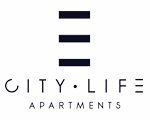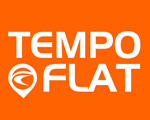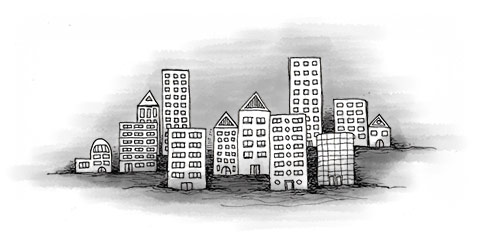Because of the unbalanced people-to-apartment ratio, landlords have the luxury of being picky. In the politely assessing tone of job interviewers, many inquire about occupations, family and length of stay. Factors like these determine who will receive the flat. A potential renter’s presentation, trustworthiness and enthusiasm for the apartment matter.
But before getting into a flat for a look through, there’s the matter of finding available flats and calling to set up appointments.
Finding Available Flats
Websites such as http://immo.tirol.com and www.uibk.ac.at contain local listings, along with newspaper the Tiroler Tageszeitung. Try to get a copy of the paper as soon as it comes off the presses to get to the good flats before they are taken; there are hawkers at the train station who sell Saturday’s edition on Friday evening.
Have a translation dictionary handy to interpret the ads. Flats can be found under the immobilien section. Most indicate the monthly rent and number of rooms (not including the kitchen); will state if it’s furnished or partly furnished; and will usually indicate if there are additional fees ( betriebskosten) for water, heating, maintenance, etc, or if all of this is included in the monthly price. If the ad does not mention these fees either way, assume they are not included in the price listed. Electricity is usually an expense separate from the listed monthly rent and fees.
Setting up an Appointment
Next comes the calling. This will likely cause confusion, because Austrians know varying levels of English and other languages. Have a German script ready in case the person only speaks German. Be sure to get the flat’s street name and number, which aren’t always listed in an ad. Also, ask who to ring when you arrive at the flat. There is usually a list of names at the building entrance, and you’ll need to buzz the right person to get through the locked front door. Getting directions is unnecessary because you can reference an interactive city map ( stadtplan) online at www.innsbruck.at
Dress nicely, arrive on time, and share any information that you think might distinguish you from others. For example, professors, doctors and those with similar titles are highly valued in Austria. If you really want the flat, show it while walking through.
The Realtor: An Easier Alternative
One way to avoid the hassle of flat hunting is to work through a realtor. Realtors will do all of the legwork and many speak both German and English well. The flats they show often have a lower monthly rent than equivalent flats rented directly through landlords. The downside is that realtors charge a commission of up to three months rent.
Getting the Flat!
After telling the landlord that you’d like the flat, there will probably be a few days’ wait while the landlord continues with scheduled appointments and decides who he most wants as a tenant. He will then call or email the chosen person and set up a time to review and sign the contract. It’s a good idea to bring someone who is familiar with the standard clauses and who speaks German, so that they can translate the contract, which can be quite lengthy. The security deposit (two or three months’ rent) is usually required with the signing of the contract—either in cash, or by bank transfer.
Key German Terms
- Wohnung: flat
- Appartement: short-term housing
- Vermieten: for rent
- Immobiliert: realtor
- Zimmer: room
- Mobliert: furnished
- Teilmobliert: partly-furnished
- Miete: (monthly) rental
- Kaution: security deposit
- Betriebskosten, BK: fees paid in addition to rent
This article has been submitted by Colleen Wright




